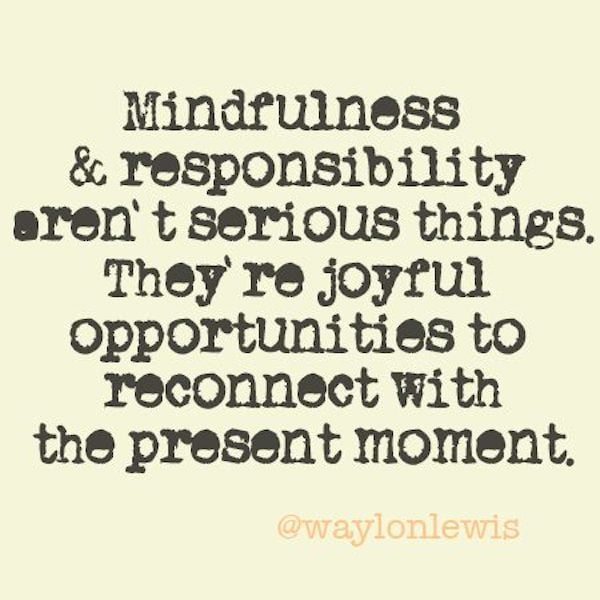What if the key to feeling better emotionally is in our own head?
Asking myself this question has been one of the most powerful changing forces in my life. The second we recognize that our negative emotional downslides (depression, anxiety, stress, and so on) are not solely a result of life circumstance and are, instead, dominantly linked to our own thought patterns—we learn how to take control of our lives.
Our thoughts have the power to change the way we see and feel about the world. They are the way we articulate meaning to ourselves. Our internal dialogue tells us a story about everything we see and interact with. The type of story we tell ourselves evokes an emotional response. If we do not recognize the root of our emotional responses, those emotions can spread throughout our day.
For example, a phone—while not inherently an emotional object—can come to represent different feelings based on the type of thoughts associated with it. One person may see their phone and feel happy because their internal dialogue tells the story of how their phone connects them with all of their friends. Another person may see their phone and feel anxious because their internal dialogue tells the story of all of the texts they never receive.
Many of us look at our phone first thing in the morning. In the example where the thought is habitually negative, the triggered emotion can spread and lead to more feelings and thoughts of anxiety throughout the day. If we are not aware of our thoughts, it is difficult to realize why an emotion has been triggered, thus we have little control. We may feel as though we are constantly having bad days and that bad things keep happening to us when in reality the “bad” pattern may be in our own thoughts.
Being aware of our thoughts can help us gain emotional control over our lives.
Awareness, in this case, means listening to and noticing thoughts as they happen. It means taking our thoughts out of the background and learning to hear what we are really saying to ourselves. For me, this process was a rude awakening, as I began to hear just how mean I was being to myself. It became easy to understand how difficult it was to feel good when someone—myself—was consistently being so hard on me.
This hard realization came with a big win: realizing I was my own biggest critic allowed me to make positive steps toward changing my mindset. It allowed me to take responsibility for my own well-being. Awareness combined with a willingness to change gave me the power to create a happier life with better thoughts. Cultivating healthy thoughts will surely be a life-long project, but my self-love is increasing every day, and I am happier now than I have ever been. I knew I could not live a happy life talking to myself how I was, and learning to be aware helped me take responsibility for how I feel each day.
Once we recognize our negative thought patterns, we can take steps to rewrite them. However, getting started can be tricky if we don’t know what to look for, so I’d like to share the three mental-habit discoveries that had the biggest impact on my happiness.
1. Discover autopilot: Bringing our awareness to the thoughts that happen automatically helps us learn to choose our thoughts more carefully. Often negative recurring thoughts are linked to something that happened to us once, yet we keep reliving that thought on autopilot. Automatic reactions have been learned and can be unlearned when we decide they aren’t worth our time and energy.
2. Recognize assumptions: A great deal of our thoughts are based in assumptions instead of truth, especially when it comes to what other people think of us. If we can see that we are creating the negative judgement, instead of the person we are assuming the judgement to be coming from, we can stop it in its tracks.
3. Identify falsely protective thoughts: Our fears often get the best of us. Our thoughts often aim to protect us from our fears by playing them out in our head as if this protects us from repeating or entering negative situations. The truth is that playing out these situations in our head already causes a negative feeling. Here we can question whether this is a worry we really need to be having at this time. We can also admit to ourselves that we can handle whatever life brings instead of preemptively playing it through our mind.
If we can see our thoughts, we can choose to stop experiencing them as if they are really happening and recognize them for what they are—a story. We then have the power to question whether that story is worth telling or if we would be better suited rewriting it. This recognition can help us stop negative emotions from spiraling out of control.
Awareness is an important first step on the journey to mental and emotional health. There are many techniques that can be learned to help develop control and create the thoughts that nourish our life. Meditation and mindfulness are two good examples, but the possibilities are endless.
Awareness is the friend that makes change possible; the journey isn’t always pretty but it sure is worth it.
~
~
~
Author: Lauren Uhde
Image: Elephant Journal Archives
Editor: Travis May
Copy Editor: Nicole Cameron








Read 0 comments and reply